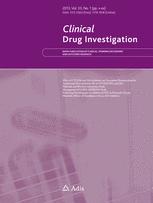
ARTHROPLASTY
Capsaicin provide comparable or better pain and functional improvement than placebo
Clin Drug Investig. 2011 Dec 1;31(12):877-82. doi: 10.2165/11593860-000000000-0000016 patients were randomized to examine whether direct instillation of a capsaicin preparation into the wound after total knee arthroplasty (TKA) would improve clinical outcomes. Patients received either 5 mg capsaicin, or 15 mg capsaicin, or a placebo and were assessed after the first 24 hours and then daily for 3 days. Results revealed that the capsaicin groups produced comparable or better pain scores with significantly less opioid use when compared to the placebo group.
Unlock the full ACE Report
You have access to {0} free articles per month.Click below to unlock and view this {1}
Unlock NowCritical appraisals of the latest, high-impact randomized controlled trials and systematic reviews in orthopaedics
Access to OrthoEvidence podcast content, including collaborations with the Journal of Bone and Joint Surgery, interviews with internationally recognized surgeons, and roundtable discussions on orthopaedic news and topics
Subscription to The Pulse, a twice-weekly evidence-based newsletter designed to help you make better clinical decisions
Exclusive access to original content articles, including in-house systematic reviews, and articles on health research methods and hot orthopaedic topics
Or upgrade today and gain access to all OrthoEvidence content for just $1.99 per week.
Already have an account? Log in


Subscribe to "The Pulse"
Evidence-Based Orthopaedics direct to your inbox.
{0} of {1} free articles
Become an OrthoEvidence Premium Member. Expand your perspective with high-quality evidence.
Upgrade Now












































































